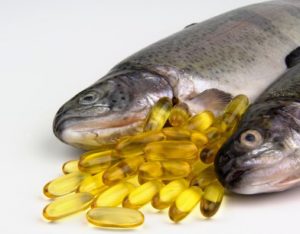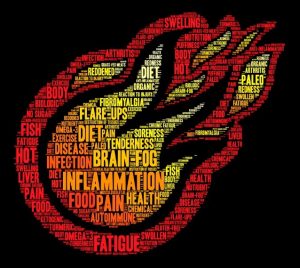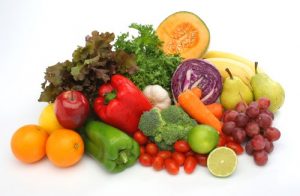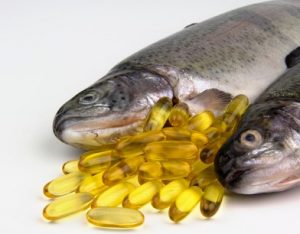Nutrition Breakthroughs Over The Last Two Years
Author: Dr. Stephen Chaney
 In the nearly ten years that I have been publishing “Health Tips From The Professor”, I have tried to go behind the headlines to provide you with accurate, unbiased health information that you can trust and apply to your everyday life.
In the nearly ten years that I have been publishing “Health Tips From The Professor”, I have tried to go behind the headlines to provide you with accurate, unbiased health information that you can trust and apply to your everyday life.
The 500th issue of any publication is a major cause for celebration and reflection – and “Health Tips From The Professor” is no different.
I am dedicating this issue to reviewing some of the major stories I have covered in the past 100 issues. There are lots of topics I could have covered, but I have chosen to focus on three types of articles:
- Articles that have debunked long-standing myths about nutrition and health.
- Articles that have corrected some of the misinformation that seems to show up on the internet on an almost daily basis.
- Articles about the issues that most directly affect your health.
Best Ways To Lose Weight
 Since it is almost January, let’s start with a couple of articles about diet and weight loss (or weight gain). I have covered the effectiveness of the Paleo, Keto, Mediterranean, DASH, vegetarian, and Vegan diets for both short and long-term weight loss in my book “Slaying The Food Myths”, so I won’t repeat that information here. Instead, I will share a few updates from the past 100 issues.
Since it is almost January, let’s start with a couple of articles about diet and weight loss (or weight gain). I have covered the effectiveness of the Paleo, Keto, Mediterranean, DASH, vegetarian, and Vegan diets for both short and long-term weight loss in my book “Slaying The Food Myths”, so I won’t repeat that information here. Instead, I will share a few updates from the past 100 issues.
My Tips On The Best Approach For Losing Weight: Every health guru has a favorite diet they like to promote. I am different. My book, Slaying the Food Myths, is probably the first “anti-diet” diet book ever written. Based on my years of research I can tell you that we are all different. There is no single diet that is best for everyone. In this article I have summarized my tips for selecting the weight loss diet that is best for you.
The US News & World Report’s Recommendation For the Best Diets: Each year US News & World Report assembles some of the top nutrition experts in the country and asks them to review popular diets and rank them for effectiveness and safety. In this article I summarize their ratings for 2022.
Does Intermittent Fasting Have A Downside? In previous articles in “Health Tips From the Professor” I have reported on studies showing that intermittent fasting is no more effective for weight loss than any other diet that restricts calories to the same extent. But does intermittent fasting have a downside? In this article I reported on a study that suggests it does.
Can A Healthy Diet Help You Lose Weight? Most investigators simply compare their favorite diet to the standard American diet. And any diet looks good compared to the standard American diet. In this article I reported on a study that compared two whole food diets that restricted calories by 25% to the standard American diet. One calorie-restricted diet was more plant-based and the other more meat-based. You may be surprised at the results.
Omega-3s
Omega-3s continue to be an active area of research. Here are just a few of the top studies over the past two years.
Do Omega-3s Oil Your Joints? In this article I reviewed the latest information on omega-3s and arthritis.
Do Omega-3s Add Years To Your Life? In this article I discussed a study that looks at the effect of omega-3s on longevity.
The Omega-3 Pendulum: In this article I discuss why omega-3 studies are so confusing. One day the headlines say they are miracle cures. A few weeks later the headlines say they are worthless. I discuss the flaws in many omega-3 studies and how to identify the high-quality omega-3 studies you can believe.
Do Omega-3s Reduce Congestive Heart Failure? In this article I review a recent study on omega-3s and congestive heart failure and discuss who is most likely to benefit from omega-3 supplementation.
Plant-Based Diets
 Will Plant-Based Proteins Help You Live Longer? In this article I review a study that looks at the effect of swapping plant proteins for animal proteins on longevity.
Will Plant-Based Proteins Help You Live Longer? In this article I review a study that looks at the effect of swapping plant proteins for animal proteins on longevity.
Can Diet Add Years To Your Life? In this article I review a study that takes a broader view and asks which foods add years to your life.
Is A Vegan Diet The Secret To Weight Loss? This is an update of my previous articles on vegan diets. This article asked whether simply changing from a typical American diet to a vegan diet could influence weight loss and health parameters in as little as 16 weeks. The answer may surprise you.
Is A Vegan Diet Bad For Your Bones? No diet is perfect. This article looks at one of the possible downsides to a vegan diet. I also discuss how you can follow a vegan diet AND have strong bones. It’s not that difficult.
Anti-Inflammatory Diets
What Is An Anti-Inflammatory Diet? In this article I discuss the science behind anti-inflammatory diets  and what an anti-inflammatory diet looks like.
and what an anti-inflammatory diet looks like.
Can Diet Cause You To Lose Your Mind? In this article I discuss a study looking at the effect of an inflammatory diet on dementia. The study also looks at which foods protect your mind and which ones attack your mind.
Do Whole Grains Reduce Inflammation? You have been told that grains cause inflammation. Refined grains might, but this study shows that whole grains reduce inflammation.
Nutrition And Pregnancy
 Here are the latest advances in nutrition for a healthy pregnancy.
Here are the latest advances in nutrition for a healthy pregnancy.
The Perils Of Iodine Deficiency For Women. In this article I reviewed the latest data showing that iodine is essential for a healthy pregnancy and discuss where you can get the iodine you need.
Do Omega-3s Reduce The Risk Of Pre-Term Births? You seldom hear experts saying that the data are so definitive that no further studies are needed. In this article I reviewed a study that said just that about omega-3s and pre-term births.
Does Maternal Vitamin D Affect ADHD? In this article I reviewed the evidence that adequate vitamin D status during pregnancy may reduce the risk of ADHD in the offspring.
How Much DHA Should You Take During Pregnancy? In this article I reviewed current guidelines for DHA intake during pregnancy and a recent study suggesting even higher levels might be optimal.
Is Your Prenatal Supplement Adequate? In this article I reviewed two studies that found most prenatal supplements on the market are not adequate for pregnant women or their unborn babies.
Children’s Nutrition
Here are the latest insights into children’s nutrition.
Are We Killing Our Children With Kindness? In this article I reviewed a recent study documenting the increase in ultra-processed food consumption by American children and the effect it is having on their health. I then ask, is it really kindness when we let our children eat all the sugar and ultra-processed food they want?
Is Diabetes Increasing In Our Children? In this article I reviewed a study documenting the dramatic increase in diabetes among American children and its relationship to ultra-processed food consumption and lack of exercise.
How Much Omega-3s Do Children Need? In this article I reviewed an study that attempts to define how much omega-3s are optimal for cognition (ability to learn) in our children.
Diabetes
 Here are some insights into nutrition and diabetes that may cause you to rethink your diet.
Here are some insights into nutrition and diabetes that may cause you to rethink your diet.
Does An Apple A Day Keep Diabetes Away? You may have been told to avoid fruits if you are diabetic. In this article I reviewed a study showing that fruit consumption actually decreases your risk of diabetes. Of course, we are all different. If you have diabetes you need to figure out which fruits are your friends and which are your foes.
Do Whole Grains Keep Diabetes Away? You may have also been told to avoid grains if you are diabetic. In this article I reviewed a study showing that whole grain consumption actually decreases your risk of diabetes. Once again, we are all different. If you have diabetes you need to figure out which grains are your friends and which are your foes.
Heart Disease
Here is an interesting insight into nutrition and heart disease that may cause you to rethink your diet.
Is Dairy Bad For Your Heart? You have been told that dairy is bad for your heart AND that it is good for your heart. Which is correct? In this article I discuss some recent studies on the topic and conclude the answer is, “It depends”. It depends on your overall diet, your weight, your lifestyle, and your overall health.
Breast Cancer
Here are some facts about breast cancer every woman should know.
The Best Way To Reduce Your Risk Of Breast Cancer In this article I review two major studies and the American Cancer Guidelines to give you 6 tips for reducing your risk of breast cancer.
The Truth About Soy And Breast Cancer You have been told that soy causes breast cancer, and you should avoid it. In this article I review the science and tell you the truth about soy and breast cancer.
Supplementation
 Some “experts” claim everyone should take almost every supplement on the market. Others claim supplementation is worthless. What is the truth about supplementation?
Some “experts” claim everyone should take almost every supplement on the market. Others claim supplementation is worthless. What is the truth about supplementation?
What Do The 2020-2025 Dietary Guidelines Say About Supplements? Every 5 years the USDA updates their Dietary Guidelines for foods and supplements. In this article I discuss what the 2020-2025 Dietary Guidelines say about supplements. Yes, the USDA does recommend supplements for some people.
Who Benefits Most From Supplementation? Not everyone benefits equally from supplementation. In this article I discuss who benefits the most from supplementation.
Should Cancer Patients Take Supplements? Doctors routinely tell their cancer patients not to take supplements. Is that the best advice? In this article I review a study that answers that question.
Can You Trust Supplements Marketed on Amazon? Amazon’s business model is to sell products at the lowest possible price. But do they check the quality of the products marketed on their site? In this article I review a study that answers that question.
Is Your Prenatal Supplement Adequate? In this article I reviewed two studies that found most prenatal supplements on the market are not adequate for pregnant women or their unborn babies.
The Bottom Line
I have just touched on a few of my most popular articles above. You may want to scroll through these articles to find ones of interest to you that you might have missed over the last two years. If you don’t see topics that you are looking for, just go to https://www.chaneyhealth.com/healthtips/ and type the appropriate term in the search box.
In the coming years, you can look for more articles debunking myths, exposing lies and providing balance to the debate about the health topics that affect you directly. As always, I pledge to provide you with scientifically accurate, balanced information that you can trust. I will continue to do my best to present this information in a clear and concise manner so that you can understand it and apply it to your life.
Final Comment: You may wish to share the valuable resources in this article with others. If you do, then copy the link at the top and bottom of this page into your email. If you just forward this email and the recipient unsubscribes, it will unsubscribe you as well.
These statements have not been evaluated by the Food and Drug Administration. This information is not intended to diagnose, treat, cure, or prevent any disease.










